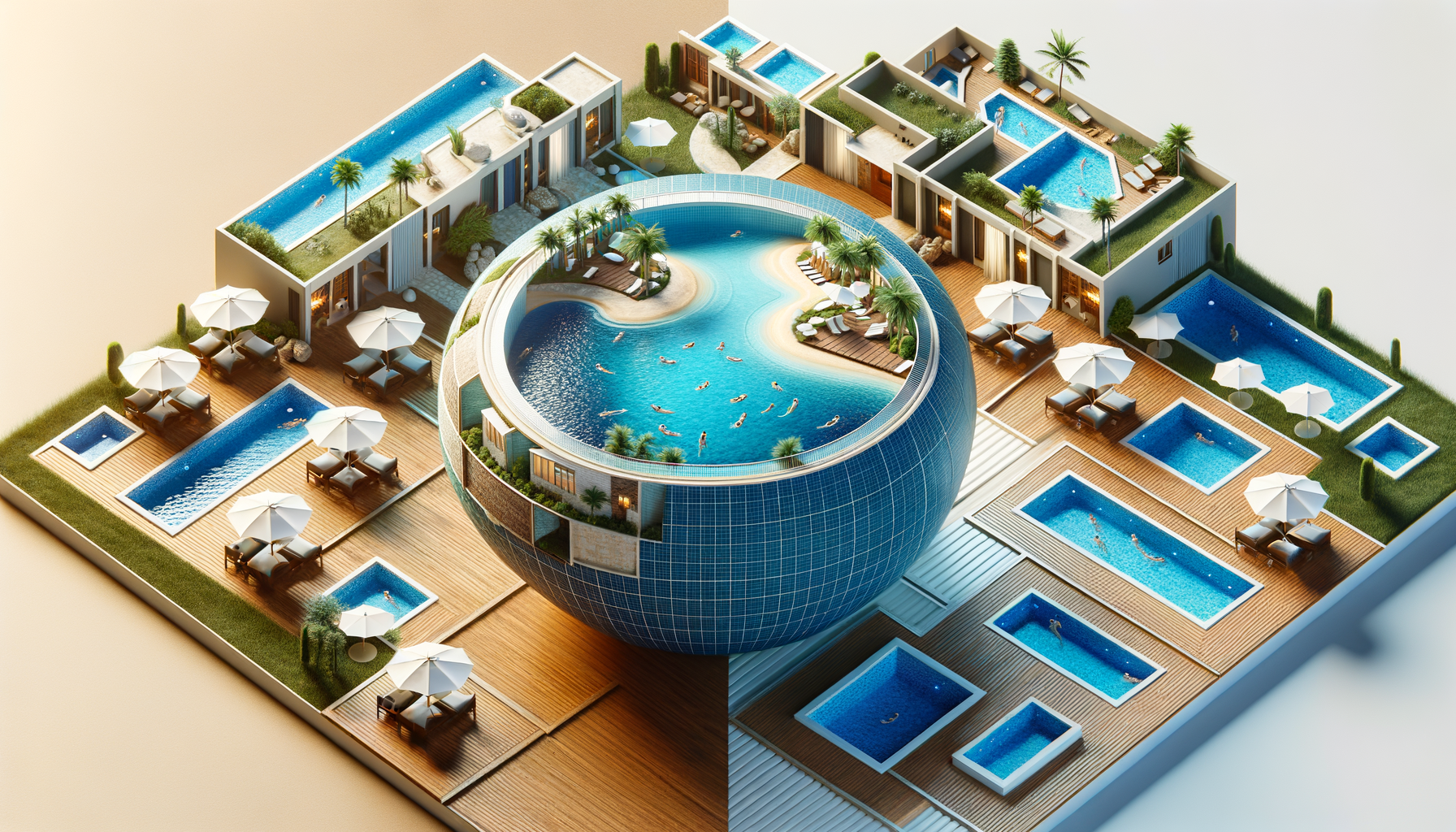A short guide to custom and prefabricated pools
Introduction to Pools Pools have long been a symbol of luxury and leisure, providing a private oasis for relaxation and recreation. Whether for exercise, entertainment, or simply unwinding, pools offer a versatile space that can enhance the aesthetic and functional value of a property. In this article, we delve into the world of pools, exploring

Introduction to Pools
Pools have long been a symbol of luxury and leisure, providing a private oasis for relaxation and recreation. Whether for exercise, entertainment, or simply unwinding, pools offer a versatile space that can enhance the aesthetic and functional value of a property. In this article, we delve into the world of pools, exploring the different types, their benefits, and considerations for installation and maintenance.
Types of Pools: Custom vs. Prefabricated
When considering a pool, the first decision often revolves around the choice between custom-built and prefabricated options. Custom pools offer the flexibility of design, allowing for unique shapes, sizes, and features tailored to specific landscapes. They are often constructed using concrete, providing durability and a wide range of finishes. On the other hand, prefabricated pools, typically made from fiberglass or vinyl, are pre-designed and manufactured off-site. These pools are quicker to install and generally more cost-effective, though they offer less customization.
Key considerations when choosing between these options include:
- Budget constraints
- Timeframe for installation
- Design preferences
- Long-term maintenance
Each type has its own set of advantages, and the decision often hinges on balancing personal preferences with practical considerations.
Benefits of Installing a Pool
Installing a pool can significantly enhance the quality of life and property value. Pools provide a convenient venue for exercise, contributing to physical fitness and overall well-being. They serve as a focal point for social gatherings, offering a space for family and friends to connect and enjoy leisure time together.
From a financial perspective, pools can increase the marketability and value of a home, particularly in warmer climates where outdoor living spaces are highly prized. Moreover, the aesthetic appeal of a well-designed pool can transform a backyard into a picturesque retreat.
Considerations for Pool Installation
Before diving into pool ownership, several factors should be considered to ensure a successful installation. Location is paramount; the pool should be positioned to maximize sunlight exposure while considering privacy and safety. Additionally, local zoning laws and regulations must be adhered to, which may dictate certain aspects of pool design and placement.
Another critical aspect is choosing the right contractor. It is advisable to seek recommendations, check credentials, and review past projects to find a reputable professional. This step is crucial for ensuring the pool is built to high standards and within budget.
Maintaining Your Pool
Maintenance is an ongoing aspect of pool ownership that requires attention to ensure the pool remains clean, safe, and inviting. Regular cleaning, chemical balancing, and equipment checks are essential tasks that help prevent algae growth and maintain water clarity.
Investing in quality pool equipment, such as pumps and filters, can reduce long-term maintenance efforts. Additionally, automated systems for cleaning and chemical distribution can simplify the upkeep process, allowing more time to enjoy the pool rather than maintaining it.
Conclusion: The Joy of Pool Ownership
Owning a pool can be a rewarding experience, offering both relaxation and a venue for social engagement. By carefully considering the type of pool, installation details, and ongoing maintenance, homeowners can create a personal paradise that enhances their lifestyle and property value. Whether it’s a custom-designed masterpiece or a prefabricated model, a pool can transform an ordinary backyard into an extraordinary retreat.